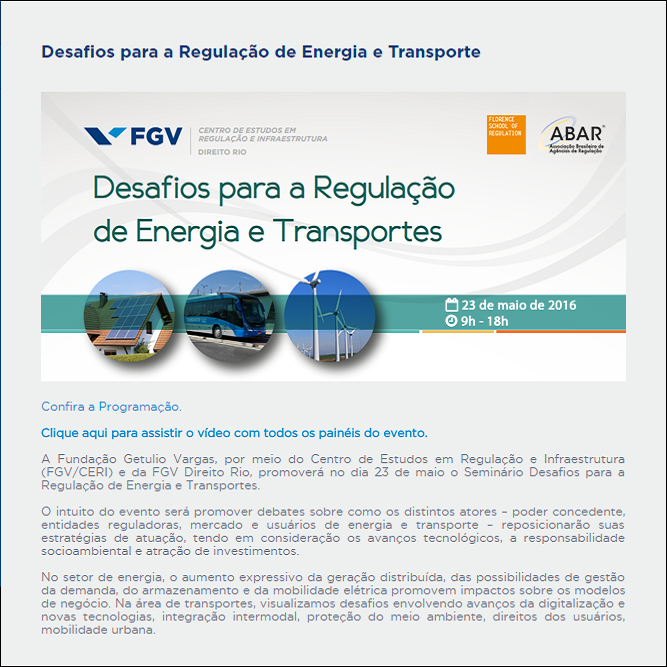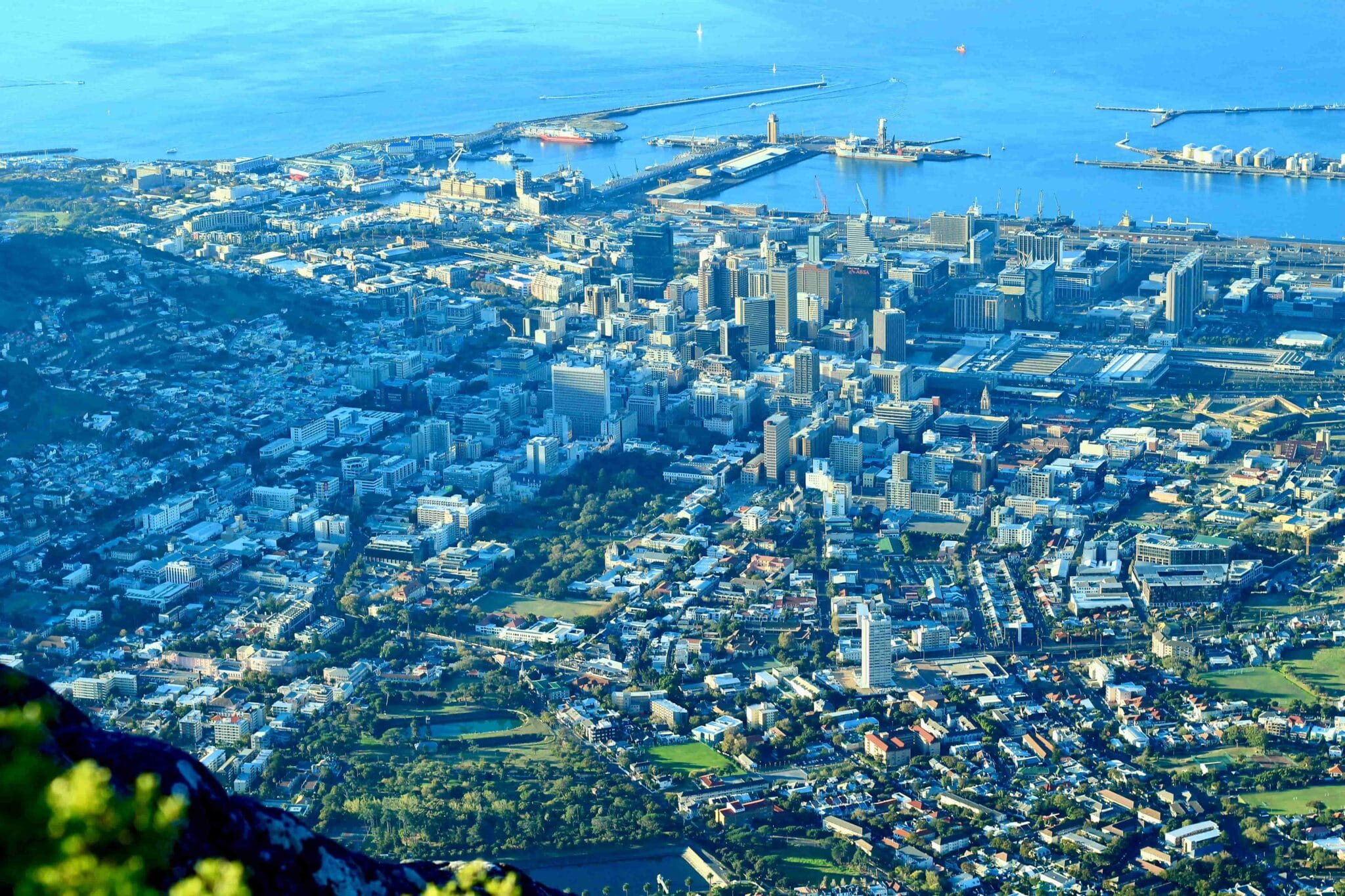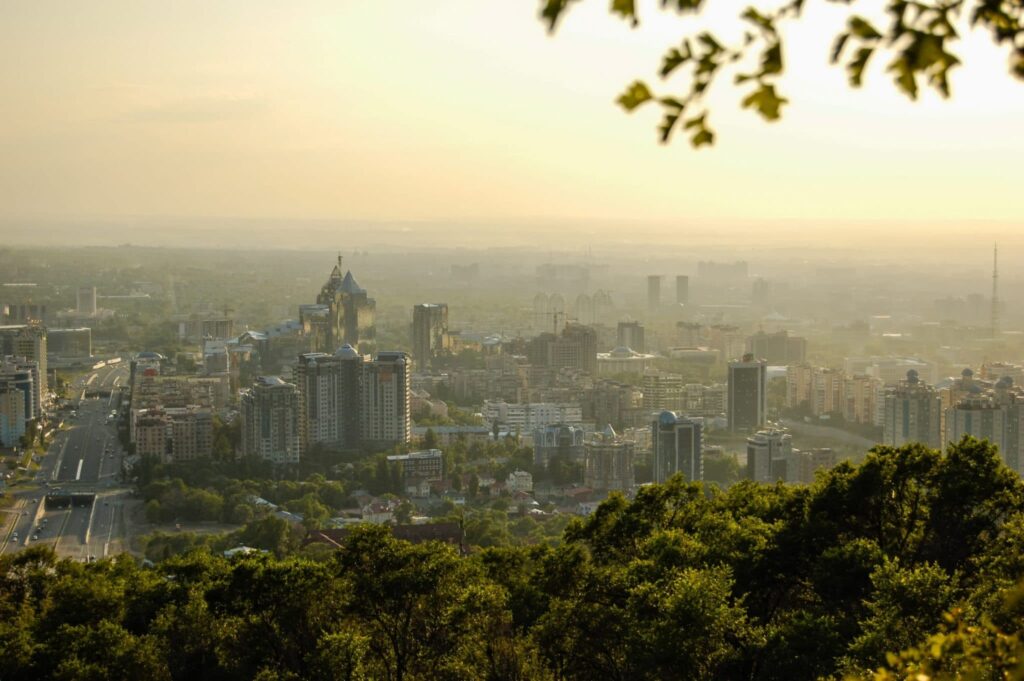As digitalization and decentralization change Brazil’s energy and transport markets, the transport and energy sectors are particularly under pressure to change their business models. In both sectors, a powerful force for change is the need to reduce emissions of greenhouse gases to meet international commitments. On May 23rd, the FGV Center for Regulation and Infrastructure and the FGV Rio Law School organised a seminar to discuss the current challenges to Energy and Transport Regulation. Prof Matthias Finger, Director of the Transport Area of the Florence School of Regulation, presented the changing business models in utilities focusing, in particular, on the consequences of the role of ICTs in transportation.
Smart Transportation
* Article written by Solange Monteiro and published on “The Brazilian Economy” – A publication of the Getulio Vargas Foundation (June 2016, vol. 8, nº 6)
Like the electric power sector, the transportation sector has been shaken by the emergence of new business models, either by the diversification of transport services or by digitalization of business. In addition to carpooling and private car rental, the opening up of urban transport by municipal ordinance to services like Uber in São Paulo – upon payment of R$0.10 per kilometer for the roads maintenance – is one of the most striking examples of this trend in Brazil.
On the one hand, experts point out that new initiatives are important because they fit into the objective of bringing more efficiency to urban transport. “Various studies show great losses of productivity resulting from traffic jams. In addition, in a number of Brazilian cities transport accounts for between 60% and 70% of carbon emissions,” says Luis Antonio Lindau, director of WRI Brazil Sustainable Cities.
On the other hand, Matthias Finger, Director of the Transport Area of the Florence School of Regulation, emphasizes the trend of creating business value through digitalization. “Digitalization allows the customer to have more information and be able to compare not only operating companies of the same transport service, but several transport alternatives,” he says. In addition, digitalization allows the generation of information about different interconnected services. “The postal service of Switzerland operates 50% of the country’s buses. This strategy began five years ago, when the postal service started to offer free Internet in buses, which enabled data collection for a mobility map. So it is not necessary to be a transport company to collect data on transport. You can do a lot with something like this,” he says. Finger believes that the digitalization of the information on people’s habits now available will allows us to plan intelligent cities and circular economies that produce no waste and pollution.
In Brazil, government efforts to make transport systems more efficient face the challenge of integrating and enhancing the spatial planning of cities. Vicente Loureiro, executive director of the Metropolitan Council of Rio de Janeiro, says that the decision that concession services should cover the entire metropolitan area of Rio de Janeiro is still a maturing process. He says the Supreme Court ruling that utility services of common interest to several municipalities should be governed by a municipal council has impacted public services. For instance, public transport decisions are now made jointly by municipalities and the state and governed by state law.
Meanwhile, Goiânia, which has had metropolitan management of public transportation for more than 20 years, now faces challenges resulting from the successful integration of Goiânia and 17 cities. Loureiro explains that “The integrated transport system and single fare rate, along with the low-income housing program, stimulated city sprawl that has compromised transport system productivity.
Now local authorities are seeking ways to halt and reverse this situation,” Daniel Marx Couto, director of BHTrans, said that the challenge in the metropolitan region of Belo Horizonte, which includes 34 cities, is to persuade 70% of the population to use public transport – currently less than 50% do so. “For the World Cup, we invested in bus rapid transit lines that transport 30% of the capital’s population, and we are seeking in the current negotiation of the concession agreement a bus fare in line with inflation and compensation per passenger, following a set of parameters such as bus’ frequency and maximum capacity,” he says.
More information
Download the full issue of “The Brazilian Economy” with the original article and the report of the Conference: http://ceri.fgv.br/eventos/desafios-para-regulacao-de-energia-e-transporte







